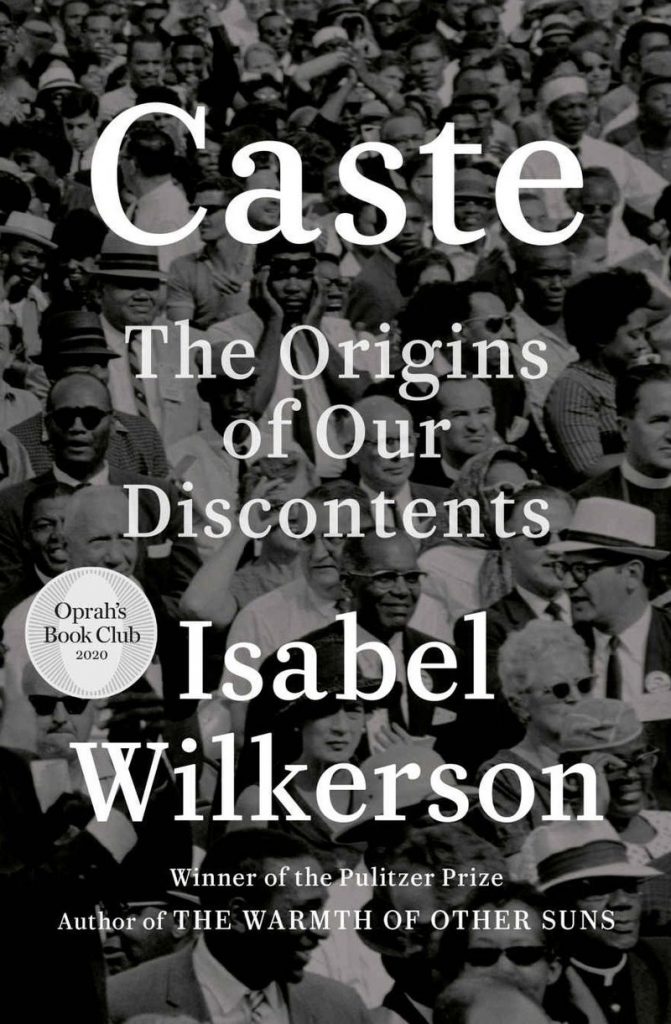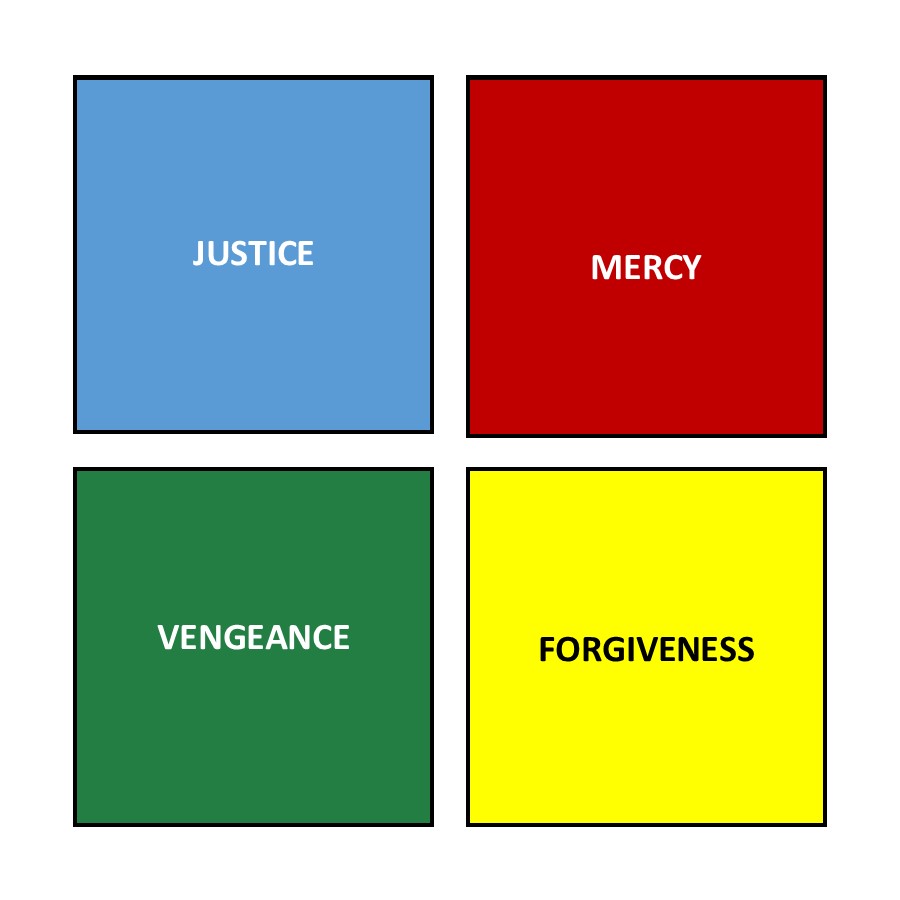philosophy
Café Wrap: Justice vs. Vengeance
Question: Does justice equate with vengeance and does mercy equate with forgiveness?
At the latest Socrates Café meetup we addressed this timely question. Though it’s two questions merged into one, the feeling (according to the one who submitted it) is that this question reflects two sides of the same coin.
Initially, one participant suggested that when feeling that one has been wronged, vengeance is individualized. If you are wronged, vengeance says, “You cannot treat me this way!” The reward for enacted vengeance may be that the actor is then feared or even respected. On the other hand, justice must be enforced by the state as it says, “You may not treat anyone this way.”
Justice is supposed to give power to the powerless, though one expressed the concern that sometimes justice is twisted to the point that it becomes vengeance. Laws are designed to maintain civil society, though the laws themselves depend on the culture in which you live; a democracy, an aristocracy, dictatorship or another form of government. Democracies, it was pointed out, have been instituted to usurp powers of kings and emperors.
We looked at mercy and forgiveness as being different from justice or vengeance. If you are a reasonable person responsible for a child, you might mete out justice by punishing a child to discourage the child from repeating the offense. But you should be merciful in that endeavor, ensuring that the punishment fits the infraction.
Juries serve justice by declaring guilty one who has been proven criminally responsible and we rely on them to do so. Likewise, we then expect the court to sentence the person accordingly. Ideally, an imprisoned criminal would be shown mercy out of respect for both the person’s humanity and feelings. We acknowledge that cases of crimes against persons rather than crimes involving property present the heaviest burdens when it comes to mercy or forgiveness.
One patron mentioned the idea that justice and mercy are often institutionalized as in hospitals and in prisons.
An individual can show mercy but feel unable to forgive, or they may show both forgiveness and mercy. Justice is meant to be proportionate to the crime and bring repentance or repair so that a person can become a productive member of society. On the other hand, if the criminal is deemed too dangerous to society as a whole, some believe the ideal punishment would keep the person humanely incarcerated until such time as that is no longer the case, while others believe capital punishment would suffice. We acknowledge the many inequities that can occur when laws are ambiguously written or applied unequally.
There are always diverse and interesting points of view offered at the Socrates Café about the question of the day. We welcome anyone who enjoys listening to others’ point of view and sharing their own from time to time.
Café Wrap: Will Racism Ever End?
Participants at the latest meetup of the Socrates Café chose to tease out the answer to the timely question, “Will racism ever end?”
We acknowledged that at this particular meetup, there were no obvious people of color in attendance, so we recognized the bias in our inclinations and lack of full representation of a more varied point of view. Still, we pressed on to first determine our own definitions of racism.
At the start, time spent trying to determine the differences between the definitions of: race, species, racism, bias, prejudice, discrimination, bigotry, oppression, etcetera carried our consideration. One person detailed the origin of the word “race” from the 1600s (corroborated by The New Fowler’s Modern English Usage which the library keeps in its Reference section) while this NPR article by Gene Demby suggests a much later use of the word “racism” and the ugliness it suggests. An excerpt from Merriam-Webster dictionary states the following.
The History and Dictionary Meaning of Racism
“Racism appears to be a word of recent origin, with no citations currently known that would suggest the word was in use prior to the early 20th century. But the fact that the word is fairly new does not prove that the concept of racism did not exist in the distant past. Things may have words to describe them before they exist (spaceship, for instance, has been in use since the 19th century, well before the rocket-fired vessels were invented), and things may exist for a considerable time before they are given names (t-shirt does not appear in print until the 20th century, although the article of clothing existed prior to 1900).”
Merriam-Webster

This passage brings up a good point as we determined among ourselves that the history of racism seems to date to the beginning of human communities. One participant suggested that racism is the “us” and them” differentiation in which one group seeks to control or see itself as superior to the other.
Some of us reported feeling hopeful that people are working toward being better, even working on ourselves to recognize when racism creeps in at first unnoticed. Another also noted how keeping groups apart breeds racism as it sows fear or distrust. This may be a deliberate action for one who seeks to control.
But, if I know you, I am less likely to think of you as being different from me in a negative way, or to consider you as less than me.
As to the simple answer to the question, “Will racism ever end?”
No. But in philosophical questions, there are rarely simple answers. Often, there are more questions that arise.
Some felt that despite efforts to avoid it, racism is a human fault. We noted that it can be argued that we are not born harboring racism, but rather it is taught. This offers hope. Hope that where racism exists, hearts and minds can be changed.
One of the great things that happens at the Socrates Café is that in the course of conversation, participants often recommend books, movies and videos, and other compelling resources. So when you join in, its a good idea to keep a notepad handy to write them down. And its often helpful to make notes for yourself for when its your turn to speak about what’s on your mind.
Here are a few of the titles that were suggested by you on the subject of racism.

Caste : The Origins of our Discontents, a new book by Isabel Wilkerson
“In this brilliant book, Isabel Wilkerson gives us a masterful portrait of an unseen phenomenon in America as she explores, through an immersive, deeply researched narrative and stories about real people, how America today and throughout its history has been shaped by a hidden caste system, a rigid hierarchy of human rankings.” ~ Goodreads
Tales of a Female Nomad: Living at Large in the World a book by Rita Golden Gelman
Earning 3.5 stars on Google Reviews, this true story follows the 48-year-old on the verge of a divorce, as she leaves an elegant life in Los Angeles to follow her dream to travel the world. She connects with people in cultures all over the globe. (This 2001 book can be obtained by filling out an Interlibrary Loan Request form at the Reference Desk.)
“In 1986, Rita sold her possessions and became a nomad, living in a Zapotec village in Mexico, sleeping with sea lions on the Galapagos Islands, and residing everywhere from thatched huts to regal palaces. She has observed orangutans in the rain forest of Borneo, visited trance healers and dens of black magic, and cooked with women on fires all over the world. Rita’s example encourages us all to dust off our dreams and rediscover the joy, the exuberance, and the hidden spirit that so many of us bury when we become adults.” ~Amazon synopsis
The virally popular YouTube series with Emmanuel Acho entitled Uncomfortable Conversations with a Black Man
The series spawned his Acho’s book by the same name. Be sure to get your name on the library’s hold list to reserve your copy.
Harvard Implicit Bias Tests
Online tool created by Harvard psychologists to help you determine your implicit associations about race, gender, sexual orientation, and other topics. More than one person at the Socrates Café recommended this.
Crash a movie
From 2004 directed and written by Paul Haggis and starring Don Cheadle, Sandra Bullock and Thandie Newton, is the story of “Los Angeles citizens with vastly separate lives collide in interweaving stories of race, loss and redemption.” ~IMDB
Umbrella Academy a Netflix series, specifically Season 2, Episode 1
Current day characters transported through time in rapid succession, arrive in Dallas, Texas in 1960. One, a black woman, walks into Stadler’s Restaurant where she is met with the shock of the diners and where a stunned employee looks at her and points to the “Whites Only” sign above him.
Each meetup of the Socrates Café gives participants an opportunity to hear other points of view, and to offer their ideas about the question of the day.
Café Wrap: The Golden Rule
Is the “Golden Rule” sufficient when examining all questions of morality?
This question, covered at the most recent Socrates Café led us to consider application of The Golden Rule toward the moral questions that we each encounter on a daily basis. Taken from The Bible, the well known Golden Rule is the idea that one should “In everything, do to others as you would have them do to you.”
Philosophy professor Clancy Martin in his lecture series Moral Decision Making: How to Approach Everyday Ethics said that this concept “appears not just in the New Testament but in slightly different formulations in a variety of ancient traditions.” He cites:

The Udanavarga of Buddhist tradition “Hurt not others in ways that you yourself would find hurtful,” and
The Analects of Confucius “Do not do to others what you would not like yourself, then there would be no resentment against you either in the family, or in the state.”
This whole concept seems simple to apply to everyday moral questions, but does applying The Golden Rule to any moral question stand up under further scrutiny?
Well, yes.
And no.
One café participant suggested that The Golden Rule is a form of reciprocity which proposes that if I treat you in a way which maximizes my happiness, then you ought to treat me similarly and by extension your happiness increases. The Wikipedia definition seems to agree. The participant elaborated further saying that it also follows that if I continue to treat you the way I want to be treated, but that you essentially use me to the point at which a reciprocal arrangement no longer exists, then I could choose to withdraw your access to my friendship.
This idea was rebutted with another person’s interpretation of The Golden Rule. Her belief is that it only states that the former treat others in a certain way, but that no reciprocity is implied or expected. Still, with respect to the concept of reciprocity, we pondered another’s suggestion to instead “do to others as they would like done to them.”
The one who proposed this idea further explained (and I’m paraphrasing here) the following. Suppose I am a person who prefers to be alone when I need de-stress. You on the other hand are one who just wants to be hugged or who prefers to enjoy time with friends in order to experience the same result. Using this interpretation I should, when you are stressed, be sure to invite you to my party, or give you a big hug.
However, there is a danger here. This presumes, as still another person pointed out, that I know best what you need for yourself, even more so than you do, and by acting accordingly I remove your autonomy.
Applying The Golden Rule to Everyday Situations
Is it okay to lie?
Apply the rule by asking, “Do I like being lied to?”
Sometimes (if it suits my best interest or helps me to learn), but not if it is used to manipulate me or is in any way hurtful.
What if you catch a co-worker taking home office supplies? Morally speaking, should you be the whistleblower or approach the co-worker about the issue?
If the roles were reversed, would you want to be talked to about this by me or by your boss and maybe lose your job as a result? Applied here, the principle seems to dictate that you should approach the co-worker to tell her, “Here’s what I saw you doing, and it’s wrong.” If after this, the co-worker continues to steal company supplies, she should at least not be surprised if you take the issue to management.
But is this really just being a tattletale or a whistleblower? If everyone steals the office supplies, will the company be able to sustain its business? What if it’s not office supplies, but the co-worker is writing checks to himself drawn from company funds? Do we have degrees to which we choose whether or when to apply The Golden Rule?
What about giving to the poor? Would I appreciate the help if I were down on my luck? If an opportunity to help someone in need presents itself and you apply The Golden Rule, then morally you would be obligated to assist.
While we may not have found the answer to our original question, we certainly came up with more questions and cause for thought about an important idea. This often happens, and that’s okay. That’s what a democracy is about.
At each meetup of the Socrates Café we choose a single question to examine from those submitted by our patrons.
You’ll find it fun an engaging. You can register here.




